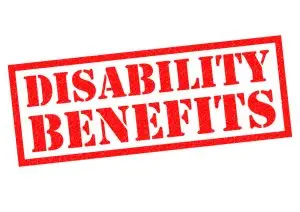
Disability Benefits Programs
If you have a severe illness or injury that prevents you from working to support yourself, you might need financial assistance to pay your bills and other living expenses. People in the United States can apply to disability benefits programs to get either Social Security Disability Income (SSDI) or Supplemental Security Income (SSI). The requirements are different for each program, and you must apply separately to each program.
The government denies many applications. As a result, many people must go through the appeals process to get the benefits they need. Working with a Pittsburgh disability benefits lawyer at Berger and Green can help you submit an application that meets the Social Security Administration’s (SSA) requirements. Call (412) 661-1400 today for a free consultation.
40+ years of experience from strong, knowledgeable, compassionate attorneys.
Start A Free EvaluationThere Is a Difference Between SSI and SSDI
Some people assume that if you qualify for one of the Social Security disability benefits programs, you also qualify for the other. That is not the case. While it is possible to be eligible for both programs, you must meet each program’s requirements separately.
SSDI provides monthly cash benefits for disabled people who worked enough years at jobs that paid into the Social Security program. The SSI program provides a smaller amount of money each month to disabled people who have low income and assets and who did not work long enough at jobs that paid Social Security taxes to qualify for SSDI benefits.
We understand that these concepts can be confusing. Do not worry. You do not have to become a Social Security disability expert to go after your benefits. A Pittsburgh disability benefits lawyer at Berger and Green can handle the legal issues on your behalf. We offer free consultations for Social Security disability benefits claims. You can call us today at (412) 661-1400 to get started.
We know you’re hurting. We can help. Free case evaluations, home and hospital visits.
Contact Us Now For HelpHow to Qualify for SSDI
The Social Security Administration uses these five factors to assess whether you are eligible for SSDI benefits:
- Your current work: If you are still working despite your illness or injury, earning more than $1260.00 a month, and are not legally blind, the SSA will deny your petition for benefits. The 2020 income limit, also called Substantial Gainful Activity (SGA), for statutorily blind individuals is $2,110 a month. The SSA will not find you disabled if you can earn more than the income limit.
- The severity of your medical condition: Your medical condition must prevent you from being able to work for at least 12 months. The illness or injury must cause substantial problems with you being able to perform basic tasks like walking, sitting, standing, and processing information.
- The Listing of Impairments: Your medical condition must meet the specific standards set out in the Listing of Impairments, also called the Blue Book. This reference tool contains technical data, like lab test results, about hundreds of injuries and illnesses in all parts and systems of the body.
- Your work performance in a previous job: If your condition does not meet the standards in the Listings, SSA will evaluate whether they think you are still able to perform your previous work duties to support yourself.
- If you can change careers: Depending on your age, the SSA might evaluate whether you can go into a new line of work. The older you are, the less likely you will have you will be expected to do other work that you have not done in the past
Even if you meet all the above requirements, you still must have enough work credits to collect SSDI benefits. You get work credits by working in jobs that pay Social Security taxes. In general, you must have 10 years’ worth of working at jobs that paid into the Social Security system to have enough work credits.
Younger workers have less time to accumulate their credits, so they do not need as many as older employees. The age you were when you became disabled determines the number of work credits you will need to qualify for SSDI benefits.
You need an attorney with the experience and dedication to give your case the care it deserves.
Start A Free EvaluationHow to Qualify for SSI
The Supplemental Security Income (SSI) benefits program has the same disability definitions and requirements as the SSDI program. You must meet the same criteria when measuring the severity of your medical condition and your inability to work and support yourself.
SSI is a safety net for disabled people who do not satisfy the work credits requirement for SSDI. Unlike SSDI, you cannot have many countable assets and qualify for SSI benefits. An individual applicant can only own up to $2,000 worth of countable assets. The limit for a couple is $3,000.
Some examples of resources that the SSA will count as assets include:
- Any item, account, or object you can sell or otherwise convert into cash that could pay for your food or shelter
- Cash
- Financial accounts and assets, like checking or savings accounts at banks, or savings bonds, mutual funds, stocks, and other investments
- Life insurance policy that has a combined cash value of $1,500 or more
- Some forms of personal property
- Vehicles
- Land
Not all resources or assets count toward the SSI limit. The home where you live and the land it is on are generally exempt. You can typically have one vehicle, some personal items, and household goods. The SSA does not usually count burial spaces or burial funds or assets that you use in your line of work.
You must have low income to qualify for SSI benefits. The SSA may include all money you make from working, any food or shelter you receive for free, and all funds you receive from other sources, including:
- Veterans’ benefits
- Unemployment benefits
- Workers compensation
- Social Security benefits from other programs
- Financial help from family or friends
We can address all the legal hurdles that may be keeping you from getting a fair settlement.
Speak To An Attorney TodayGet a Pittsburgh Disability Benefits Lawyer to Help You Apply for Benefits
The SSA has a mountain of regulations that control who gets SSDI or SSI benefits. A Pittsburgh disability benefits lawyer at Berger and Green can help you prepare your application or appeal an adverse decision. You can call us today at (412) 661-1400. The initial consultation is at no cost to you.









